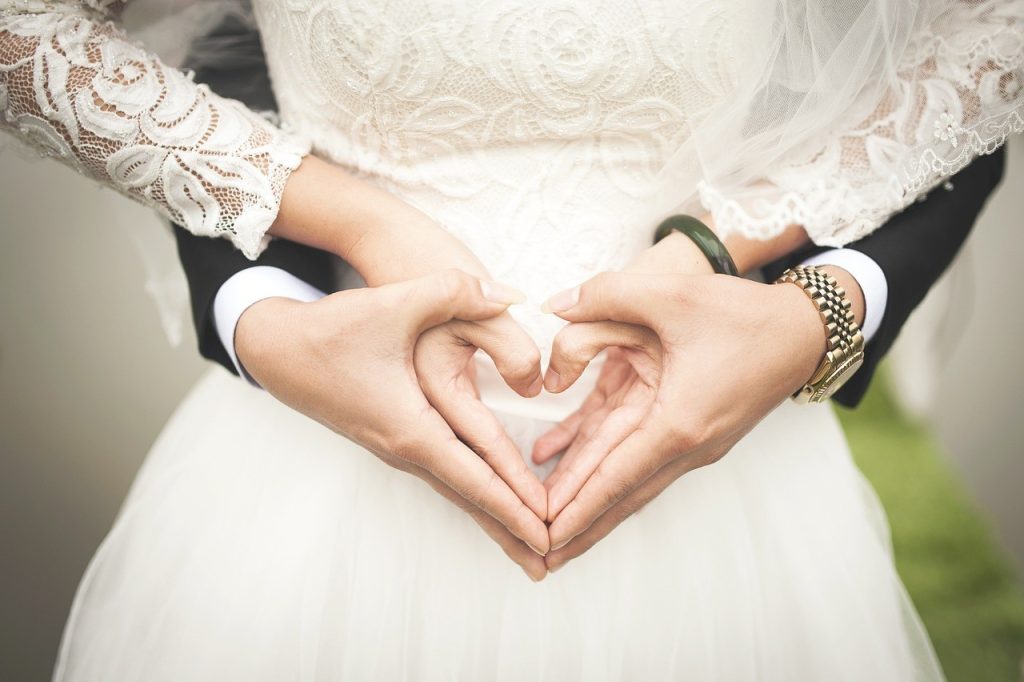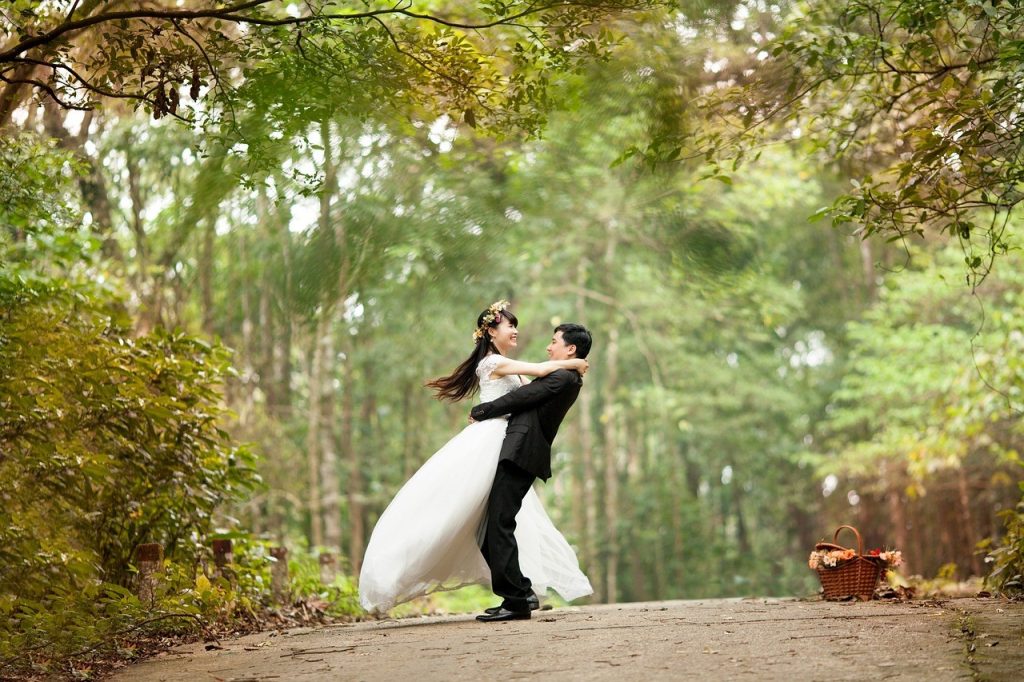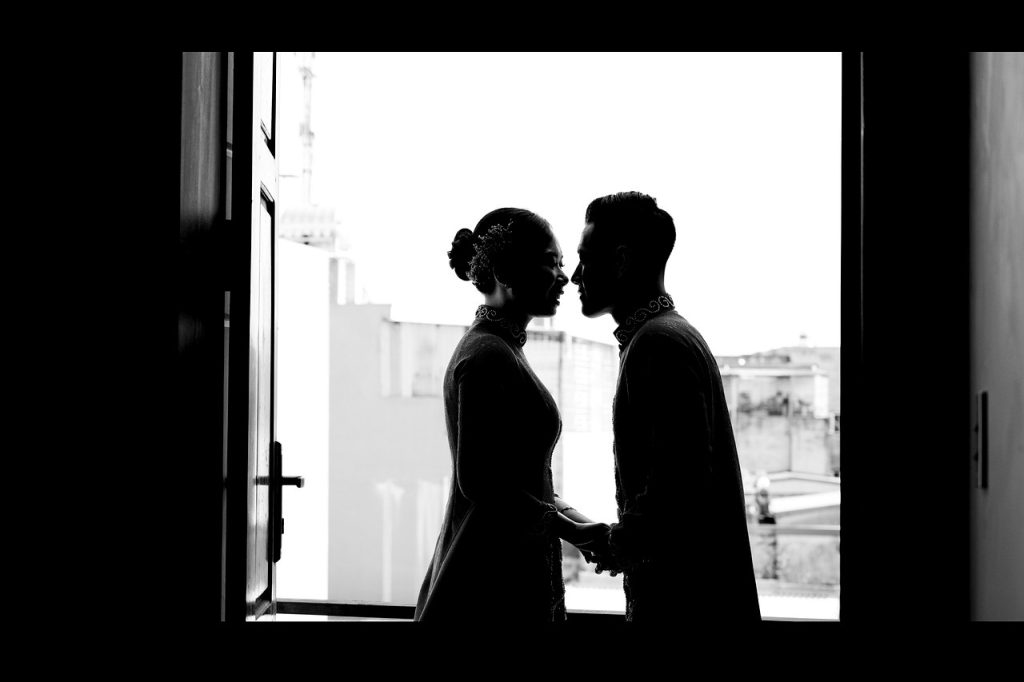You want your wedding to be a special and momentous occasion. However, you feel restricted and unsatisfied by the rigid traditional order of legal weddings. With that said, more and more people are saying symbolic weddings are more special than legal weddings, but what exactly is a symbolic wedding?
A symbolic wedding, or a humanist ceremony, is a secular, inclusive, and flexible type of wedding that couples can opt to do after or without a legal or civil wedding ceremony. While not legally binding, a symbolic wedding provides more freedom to customize your ceremony.
A symbolic wedding ceremony may be best if you wish to make a statement, break from tradition, or simply enjoy more breathing room to modify your wedding. However, be aware that a symbolic wedding has specific disadvantages, so it’s vital to weigh your needs and circumstances.
What is a Symbolic Wedding Ceremony?

As stated above, symbolic wedding ceremonies are secular, inclusive, and flexible wedding ceremonies. In essence, they are wedding ceremonies that allow the wedding couple to have much more freedom in planning and customizing the ceremony.
The symbolic wedding ceremony’s highly personalized and modifiable nature owes itself to the fact that this ceremony is not legally binding. Because a symbolic wedding ceremony is not legally binding, it doesn’t have to follow any rigid or traditional order.
For instance, a symbolic wedding ceremony doesn’t need a priest or a lawyer to officiate the wedding. A trusted individual, such as a close friend, can instead act as the celebrant. Similarly, a symbolic wedding ceremony doesn’t demand as many legal requirements or research as a legal or civil ceremony.
Who Would Want a Symbolic Wedding Ceremony?
Any couple can want and choose to have a symbolic wedding for various reasons. Even if a couple is already legally married, they can choose to have a symbolic wedding ceremony, thus enjoying all its customizability and flexibility in the process.
Symbolic wedding ceremonies appeal the most to couples who feel restricted by traditions or regulations. These tend to be same-sex couples, irreligious couples, newly divorced couples, or couples with unique tastes, plans, customs, and rituals for their wedding day.
Symbolic weddings also appeal to couples who want to have destination weddings, i.e. weddings in foreign countries. In a similar vein, couples may also want to have a symbolic wedding ceremony to accommodate an unusual venue, such as their own homes or an outdoor location.
Pros of a Symbolic Wedding Ceremony

-
Customizable
A symbolic wedding ceremony has much more customizability than a legal or civil wedding. Couples can modify a symbolic wedding ceremony in any way they wish, such as by changing the traditional order of events, adding new customs or rituals, and choosing their own trusted celebrant.
Because of the symbolic wedding ceremony’s customizability, many couples choose to have such a ceremony after their legal wedding, usually at a special destination and with special modifications to suit the meaning of their relationship. A symbolic wedding ceremony can thus be more personal and memorable.
-
Locationally Flexible
Couples often choose to have symbolic wedding ceremonies if they have a unique destination in mind, such as a foreign country, or a non-traditional venue such as their backyard, a resort, or an outdoor location.
Indeed, most countries have far fewer restrictions and regulations when it comes to symbolic wedding ceremonies, compared to legal or civil weddings. Because such ceremonies are not legally binding, couples can enjoy much more freedom in selecting their wedding location.
-
Easy Scheduling

Compared to civil or legal ceremonies, symbolic wedding ceremonies are much easier to schedule. Because of the freedom and flexibility of such ceremonies, couples can schedule their ceremony according to a time window that best fits themselves and their guests.
Such a ceremony is also useful if a couple wishes to have this ceremony on a special day, such as an anniversary, or in a specific season. The ceremony’s schedule would also be unhindered by the time constraints of a legally binding official.
-
Less Research and Requirements
A symbolic wedding ceremony has looser requirements compared to a legal or civil wedding ceremony. For instance, a symbolic ceremony doesn’t need an official such as a priest or a lawyer to be present. It also doesn’t have any requirements related to a legally binding marriage certificate.
This has a lot of utility for couples aiming to have their wedding in a foreign country, as they don’t need to worry about translating or formatting their wedding certificates to match a country’s regulations. Couples may also do less research in preparation for their ceremony, compared to a legal or civil wedding.
-
Inclusive
Finally, a symbolic wedding ceremony is more inclusive compared to a legal or civil wedding ceremony. It’s not beholden to any set of rules, traditions, or cultural customs. Instead, the order, schedule, rituals, events, vows, and certificate of a symbolic wedding ceremony is completely up to individual preferences.
Hence, a symbolic wedding ceremony can be very accommodating to same-sex couples, irreligious couples, and couples with extraordinary tastes and circumstances. Because of this, symbolic weddings are becoming more and more popular.
Cons of a Symbolic Wedding Ceremony

-
Non-Legal
The non-legal nature of a symbolic wedding ceremony is its most significant disadvantage. This means that this ceremony will not legally bind a couple together and thus their legal conditions relating to the division of property, inheritance, marital status, and other such concerns will remain fundamentally unchanged.
Hence, most couples prefer to legally settle their marriage first in a civil wedding, before committing to a symbolic wedding ceremony. Sometimes, couples may even choose to treat their symbolic wedding ceremony as the “main” ceremony for their guests to attend. They may do this if they want to keep the legally binding ceremony quick, quiet, and private
Couples planning destination weddings may not necessarily need to do a symbolic wedding, as some destinations offer less restrictive requirements for a legally binding wedding, such as particular US states.
-
Non-Traditional
Couples that would prefer a traditional approach will more likely be held back by a symbolic wedding ceremony. If a couple has no issue with the traditional order and style of a legal or civil wedding ceremony, then a symbolic wedding ceremony can be an obstacle instead of an aid.
With that in mind, certain guests who are more used to traditional weddings may have concerns over a symbolic wedding ceremony or may be put off by its style. Hence, conducting a symbolic wedding ceremony will most likely have to consider these guests’ expectations and preferences.
-
Hassle for Guests

Speaking of guests, potential guests may treat a symbolic wedding very differently compared to a legal or civil wedding ceremony. Such a ceremony can invoke some sources of stress and uncertainty for all those who may be invited.
For instance, as a lot of symbolic wedding ceremonies tend to be destination weddings as well, guests may have to think about the added costs and stress of traveling. Similarly, if a friend or a loved one is the designated celebrant, the couple must also consider the pressure and responsibility they’re placing on them.
Ethical Considerations
Some couples would consider hiding the legal status of their wedding ceremony as a strategy to keep the guests’ minds off its legality and prevent intrigue. After all, whether or not the ceremony is legally binding can be a private and sensitive matter to the couples.
This can thus be ethically off-putting to certain people as it essentially means that the couple withholds important information from the guests which affects their perception of the wedding. However, such a strategy can be easily explained.
Final Thoughts
A symbolic wedding ceremony offers a wide range of advantages and disadvantages. Any couple interested in organizing such a ceremony must carefully consider their needs and circumstances, and whether these fit the strengths of a symbolic wedding ceremony.
At the end of the day, the style, order, and status of a wedding is completely up to the couple and is best talked about as a team. It’s also worth weighing the costs and benefits of a legal wedding with a symbolic wedding ceremony. In any case, what matters is that the ceremony is meaningful and special.